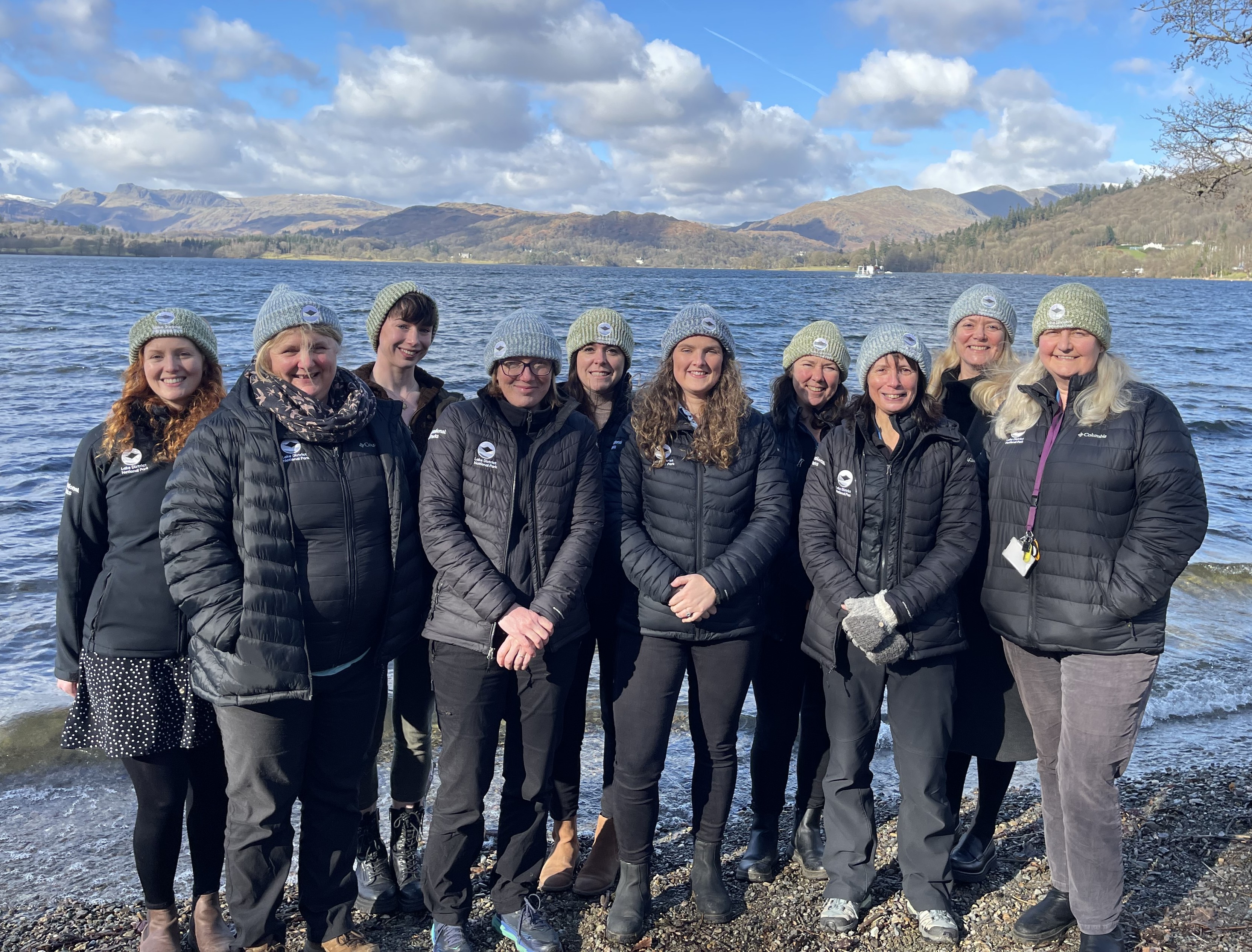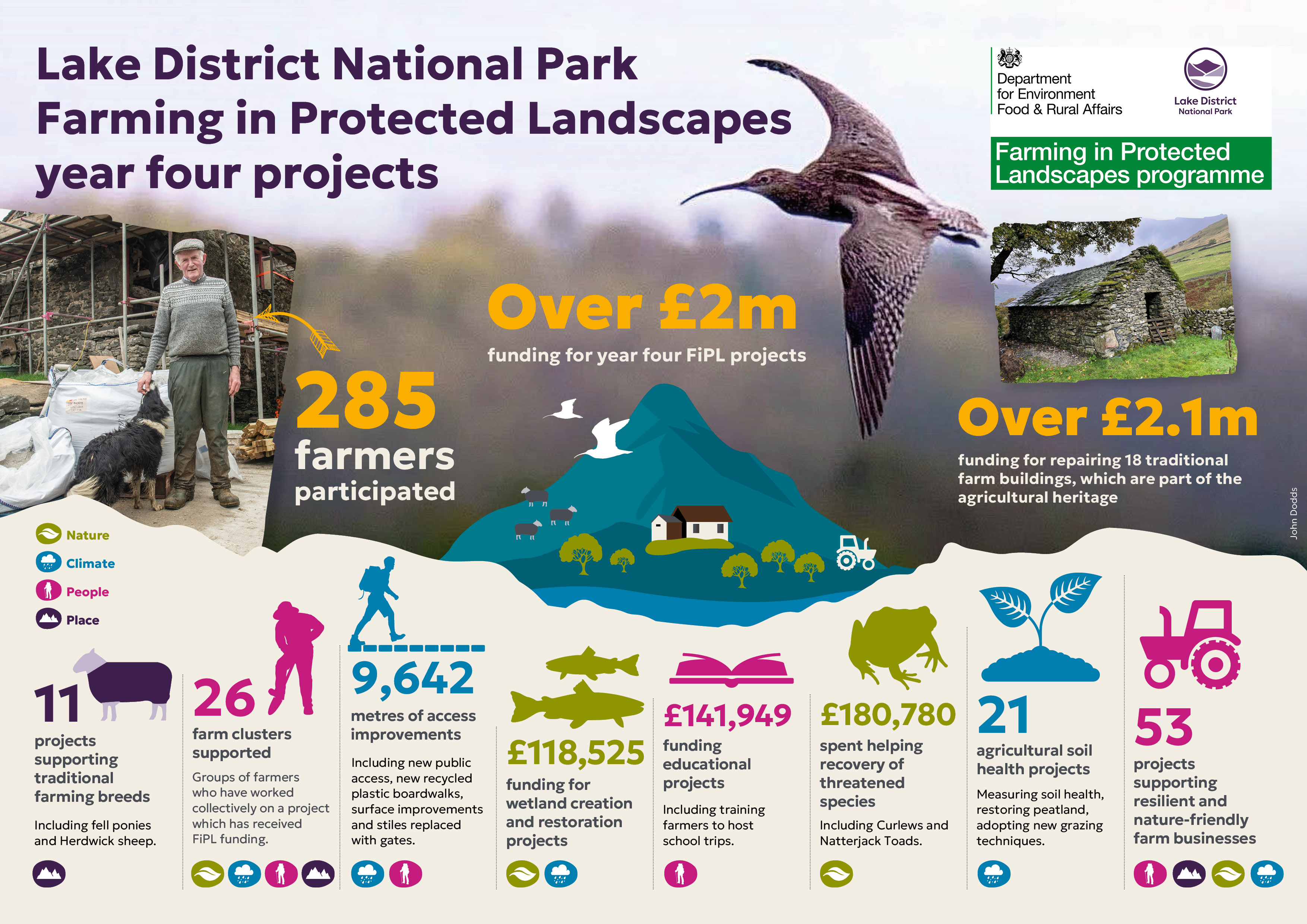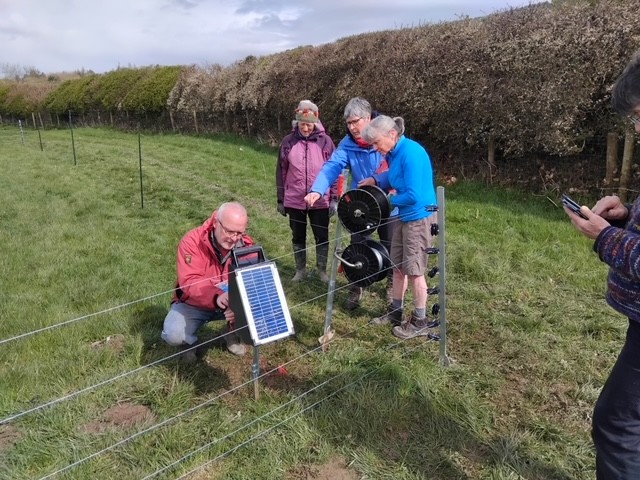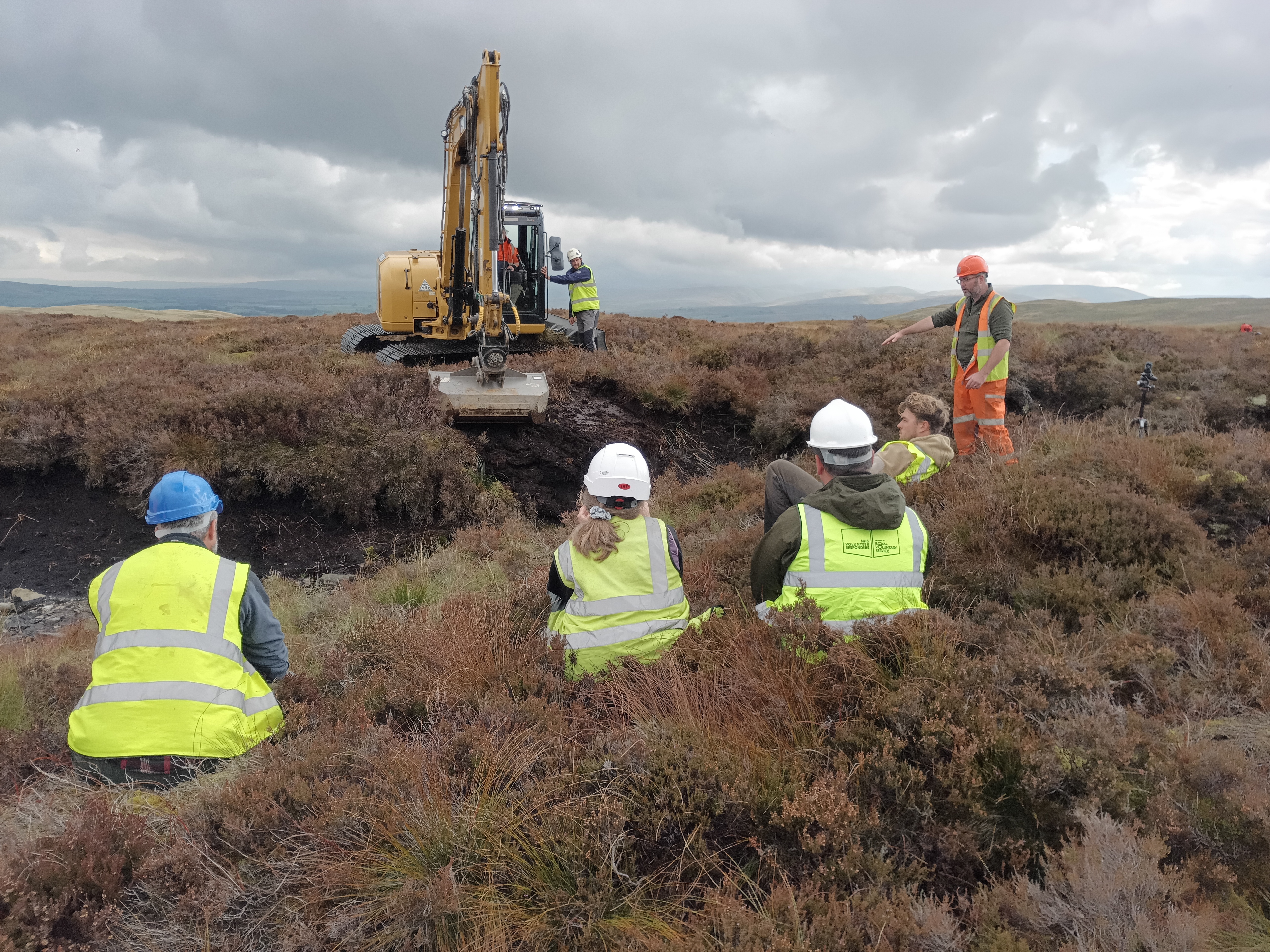
The funding has been extended for another year, with farmers and landowners invited to apply
The Lake District National Park Authority (LDNPA) is celebrating the success of a fourth year of funding from DEFRA’s Farming in Protected Landscapes (FiPL) grant.
The scheme provides funding to farmers and land managers in the Lake District, supporting projects which; support nature recovery, mitigate the impacts of climate change, provide opportunities for people to discover, enjoy and understand the landscape and its cultural heritage, protect or improve the quality and character of the landscape or place.
Between April 2024 to March 2025, FiPL provided £2,038,269 in funding for projects, which saw a total of 285 farmers participate.
Across the 2024/2025 FiPL projects:

FiPL funding has also been extended for 2025/26, with applications being accepted for new projects.
Claire Foster, LDNPA Farming Officer, said: “We’re pleased to continue to deliver the FiPL scheme for 2025/26 and look forward to continuing to support farmers and land managers as they deliver projects which support people, place climate and nature across the Lake District National Park.
“This year we’re particularly keen to hear from those who haven’t previously taken part in the FiPL scheme, so please do reach out to us through the LDNPA website if you have a project idea you’d like to explore.”
You can find more information and forms on how to apply, on the LDNPA website: https://www.lakedistrict.gov.uk/caringfor/farming/farming-in-protected-landscapes
You can read about some of the projects FiPL has supported below.
Hill Top Farm tours
With a grant contribution secured through the FiPL scheme, the Dixon family, who’ve farmed at Hill Top for 35 years, are now offering farm tours on selected dates. The 250 acre plus farm, in Near Sawrey, is attached to the house of the famous children’s author Beatrix Potter.
The tours give a rare glimpse beyond the gate into life on a working Lakeland farm today. The grant supported branding and essential health and safety measures, including a mobile handwashing station, foot dip, mats, disinfectant, and secure sheep-handling gates.
As well as celebrating the heritage of this iconic Beatrix Potter farm and the native Herdwick sheep she helped protect, the tours create an additional sustainable income stream—helping the family continue their work and preserve Hill Top’s legacy.
Eliza Hodgson, Assistant Farming Officer at LDNPA, said: “These tours also play a vital role in creating a sustainable income stream for the Dixons family farm, helping them to continue doing what they love whilst keeping the legacy of the place alive for future generations.”
Melbreak Curlew Recovery project
One of the projects which received funding to help protect curlews, was the Melbreak Curlew Recovery Project.
David Gardiner, who manages the project, explained it was set up a couple of years ago through a local community interest in nature recovery.
David said: “There were four curlew nests which helped us realise there are more curlews breeding in our valley then initially thought. The numbers of curlews have declined by about 50 percent.
“Curlews return to the same place where they were born and breed, so if the population dies in a particular area it’s difficult to get it restored. We know numbers are declining, what we’re trying to do is get in there and protect the curlews we have before they all disappear and we can’t get them back.”
Tim Newton, a farmer who volunteers with the project, became involved after hearing a talk at a community event where the call of a curlew was played.
He said: “After they played their song it grabbed me. I can hear them in the morning when I’m lying in bed and I’d spotted a few around. David [Gardiner, of the project] said I’ll give you a telescope and binoculars and it went from there really.”
With equipment like binoculars, telescopes and cameras, paid for through FiPL funding, Tim helped identify and set up measures like fencing to protect ground-nesting birds and their chicks.
Tim said it also had benefits for his wellbeing. He said: “It’s something quite different for me, usually I’m all work, work, work. To sit in the van quietly and just watch nature – it’s quite therapeutic for me.”

Peatland project
As well as smaller nature recovery projects, FiPL has funded larger-scale schemes. This includes a peatland project safeguarding Cumbria’s key carbon store and a significant nature-based solution in the fight against climate change.
Delivered with Cumbria Wildlife Trust and supported by a £30,900 grant (April 2024–March 2025), the project recruited and trained volunteers to monitor rewetting techniques and structures on seven peatland habitats, including Armborth Fell, Branstree (on the side of Hawswater) and Barf Common (Lorton Fells).
The project also boosted local contractor capacity by offering training and part-funding essential equipment—unlocking more restoration opportunities across Cumbria. And farmers had the opportunity to find out how they can benefit from peatland restoration efforts.
Speaking about the monitoring, Lee Bassett, who led the project, said: “It’s a simple but effective way to track the condition of restoration efforts. When something’s flagged, it prompts staff to act before bigger problems arise. With more peatland restoration on the horizon, volunteer-driven monitoring will be vital to making future efforts even more efficient and successful.”
